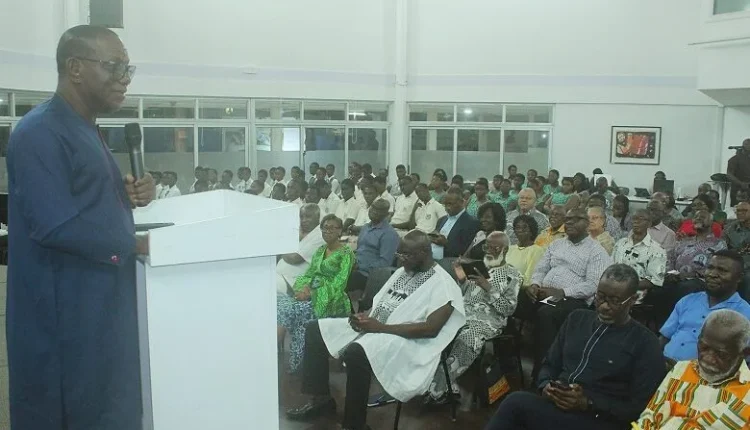‘SHS heads must be granted autonomy to cater for unique interest of students’
Senior high school (SHS) heads must be granted the autonomy to operate independently, the Chief Technical Advisor of Transforming Teaching, Education and Learning (T-TEL), Mr Akwasi Addae-Boahene, is advocating.
This according to him would enable the heads take decisions to cater for the unique needs of their students and institutions.
Mr Addae-Boahene gave the remarks in Accra on Wednesday during an event organised by the Achimota Old Students Association to discuss the concept of the Free Senior High School (SHS) policy and the reforms required to ensure its sustainability.
According to him, such an autonomy would enable school leaders to develop innovative curricula to foster a culture of excellence in secondary schools.
“In the broader context, school managers feel powerless in fulfilling their leadership roles, and this makes it difficult for the authorities to make decisions that cater for the unique needs of their students,” he said.
He noted that the Parent Teacher Association (PTA), which traditionally provided vital support and resources to schools, had been disempowered and restricted from participating in school affairs, adding that it had prevented school heads from responding quickly to students’ needs.
“What began as a promising and transformative policy with the capacity to catalyse our nation’s economic and social advancement became mired in political manoeuvring,” he said.
Moreover, Mr Addae-Boahene said the policy lacked a holistic approach, which failed to encompass three crucial drivers of secondary education.
The three drivers, he said, included access, relevance and equity, citing that quality in an interrelated way could be impactful when these drivers were available in the free SHS policy.
He added that there was a need for the government to establish a dedicated, transparent, and sustainable funding framework considering the policy’s comprehensive resource requirements.
For his part, private legal practitioner, Ace Ankomah, said a critical step towards improving education was to establish a system where every school met minimum standards before it could fully operate.
He emphasised the importance of setting a baseline for education, citing the need for every school to have adequate infrastructure, including classrooms, libraries, and sanitation facilities to ensure quality education.
The Programme Manager of Central Leadership Programme, Mrs Ewurama Bennin, stressed the need for a merit-based system within Free SHS policy to foster a more inclusive and competitive learning environment.
The system, she said, would allow high-achieving students to advance more quickly and prevent boredom and disengagement associated within the learning space.
“A merit-based system in the Free SHS policy would enable students to progress at their own pace, allowing them to seamlessly integrate with their peers and avoid feeling left behind in the classroom,” she said.
Also, she underscored the need for the government to create conducive learning environments for day students, ensuring they had access to comfortable and well-equipped facilities that fostered academic success.
Additionally, Mrs Bennin stressed the importance of investing in community libraries to provide students with access to a wealth of resources, which would promote literacy and lifelong learning.


